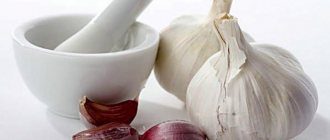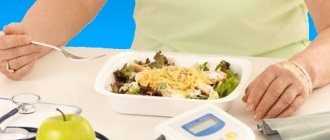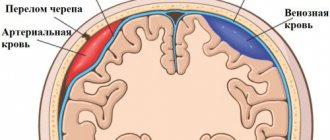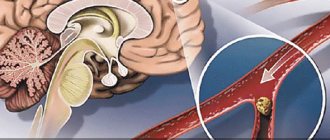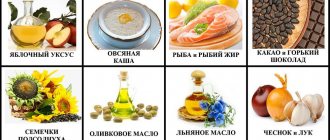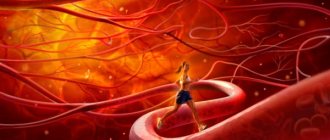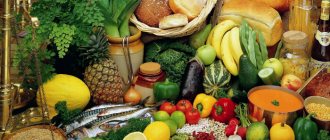Is it possible to eliminate sugar from your daily diet? How will such a change in diet affect the body? Will it help you lose weight and improve your figure? Will there be negative consequences?
In the stomach, sugar breaks down into fructose and glucose. Glucose is the main source of energy necessary for the normal functioning of the brain, muscles, and internal organs. If it does not enter the body, a person feels weak, it is difficult for him to concentrate, do physical work, move, and loss of consciousness is possible. With a prolonged lack of glucose, exhaustion and disruption of the digestive system are observed.
Most of the glucose enters the modern human body in the form of sugar. Isn't he in danger of exhaustion if he gives up sweet crystals in their pure form, confectionery, and drinks? Refined sugar became an affordable food product at the end of the 19th century. Before that, it was produced very little, and it was absent from the daily menu of people, but they had enough strength for geographical and intellectual discoveries, wars, exploits, the continuation of the human race and the improvement of our world.
Harm from eating sugar
Nutritionists recommend that healthy people limit their sugar intake: no more than 25-30 grams per day. But, according to statistics, the average rate of its consumption in Russia is 107 grams, in the USA – 160 grams.
The sweet life brings bitter consequences:
- obesity - with each spoon of white crystals we get 20-30 calories, which turn into fat deposits, weight increases, it becomes harder to move, and the disease develops;
- diabetes;
- decreased immunity;
- atherosclerosis;
- damage to the walls of blood vessels;
- decreased strength of bone tissue;
- the proliferation of microorganisms in the mouth that destroy tooth enamel.
When breaking down and eliminating sweets, the stomach, liver, kidneys, and pancreas experience increased stress, which provokes malfunctions in their work and the development of diseases of the endocrine, digestive and excretory systems.
Blood pressure is higher than normal (more than 120/80 mm Hg)
Go with the flow
If your blood pressure rises already in your youth, then you probably belong to the so-called “type A”: you are responsible, ambitious, strive for excellence and experience any “inconsistency” as a personal tragedy. “Type A” people always try to change everything and everyone, and, as it seems to them, make it better.
Remember that “if you cannot change the world, then you can change your attitude towards it,” and also that “the best is the enemy of the good.” And take an example from “type B” people who perceive everything as it is.
Protect yourself from stress
If you work, try to never combine two important tasks in one day, for example, do not make an important appointment two hours before your doctor's visit. There is a wonderful English saying: “Never do your best.” People of your type should take it on board because you always try to do more than you can.
If you are still raising a child and staying at home, do not try to be the “most, most, most” housewife, mother, wife, daughter-in-law. Your life will become much easier, and your blood pressure will normalize.
Freshen up your menu
Give preference to raw vegetables and fruits - they should be on your menu every day. It is known that vitamin C has a strengthening effect on the walls of blood vessels, so try to eat those foods that contain it in abundance: rosehip infusion, oranges and lemons, sauerkraut, sweet peppers, black currants. Enrich your diet with magnesium and potassium: there is a lot of it in buckwheat, millet cereals, oatmeal, soybeans and beans.
Less salt
Excess sodium in the body retains water, which narrows the blood vessels even further and increases blood pressure. Your body needs 4–6 g of sodium or 10–15 g of table salt per day. About half of it is found in the foods you eat. There is especially a lot of salt in canned food; it is better to avoid them altogether. Remains half a teaspoon per day. This, by the way, will help you not drink too much liquid per day, because your daily norm is approximately 1.2 liters.
Rolls - off the table!
Excess weight contributes to the development of arterial hypertension. If you are overweight, limit sweets and starchy foods.
Benefit
Excessive consumption of sugar is harmful, but the body cannot be completely deprived of glucose; it is necessary to maintain normal carbohydrate metabolism. If it is violated, performance decreases. Brain cells, without receiving nutrition, work more slowly, and it is difficult for a person to concentrate, express his thoughts, and generate new ideas. Irritability and aggressiveness appear. But it’s enough to eat a sweet dessert, and in a few minutes you will have strength, fresh thoughts, and your mood will improve.
But glucose is not only found in white refined sugar. This is a natural carbohydrate that is rich in sweet fruits and vegetables. Natural sugars are found in honey, dairy products, and nuts. Their use allows you to obtain the daily norm of glucose, fructose, lactose, which is sufficient for the normal functioning of the body.
Why is it difficult to give up sweets?
When refined sugar is consumed, the brain produces serotonin and dopamine - pleasure hormones. It is addictive like a narcotic drug. Refusing it can cause discomfort:
- irritability, depression, anxiety;
- decreased performance, rapid fatigue during physical and intellectual work;
- headache;
- insomnia;
- muscle pain;
- violation of the diet - at the usual time of breakfast, lunch, dinner, appetite disappears, but at inopportune times there is a strong desire to eat something sweet.
If you show willpower and give up sweets, the negative consequences of refusal will disappear in 2-3 weeks: sleep and appetite will improve, you will feel lightness and a surge of energy, your well-being and mood will improve.
Quitting pure sugar
If you want to lose weight and improve your health, you can stop eating sugar in its pure form. Most often we add it to tea, coffee, and fruit salads. But gourmets advise enjoying the natural taste of good tea and coffee. They believe that sweetness only destroys the harmony of taste of these drinks. You need to feel it, learn to enjoy it, and it will be easy for you to wean yourself off the sweet additives and extra calories. Ripe fruit, unless it's a lime or lemon, contains a lot of fructose. They are quite sweet, and the desire to sprinkle them with white crystals or powder is a tribute to a habit that is easy to give up and forget about over time. To appreciate the benefits of natural taste, drink good aromatic tea, coffee, and eat ripe, fresh fruit.
Foods that will help raise blood pressure
If your blood pressure monitoring readings are low, but not low enough to require medication, you can try to correct them with tasty and healthy foods:
- Sweet, strong tea will help with a sharp rise in blood pressure. You can drink it with a sandwich (bread, butter and hard cheese).
- Grind the roasted coffee beans, about 50g, and add 500g of honey. Add fresh juice of 1 lemon and stir well. Keep the finished mixture in a glass container in the refrigerator. Take 1 teaspoon an hour after breakfast.
- Ginger has a mild tonic effect. Dissolve 1/2 teaspoon of ginger powder in 250 ml of tea (strong and sweet). For 7 days, drink 1 glass of this drink, divided into 3 doses.
- Salt helps raise blood pressure - seeds, nuts, cucumbers. However, you should not abuse them, putting an excessive burden on the kidneys.
Any of the proposed methods requires moderation from the patient. It is also necessary to remember that the problem of hypotension cannot be solved with diet alone. Timely consultation with a specialist and regular use of prescribed medications are necessary.
Avoiding sugar in foods
Refined sugar is addictive, improves taste, and manufacturers make the most of these properties of an inexpensive product, adding it not only to confectionery, but also to bread, pickled vegetables, sausages, mayonnaise, ketchup, etc. If you completely abandon it, the range of products purchased in the supermarket will be significantly reduced. But by eliminating sausage, mayonnaise, shelf-stable sauces, candies, cookies and other sugar-containing products from your diet, you will maintain your health and reduce the risk of developing diabetes, obesity, and atherosclerosis. Without them, it’s easy to create a varied, delicious everyday or holiday menu. To ensure that the body receives enough energy, use foods rich in proteins and carbohydrates: cereals, meat and fish, vegetables, fruits.
Does sugar affect blood pressure?
Now we can say with confidence that not only salt, which most hypertensive patients are aware of, but also blood sugar levels affect blood pressure.
The higher the glucose concentration (hyperglycemia), the higher the corresponding blood pressure readings. In addition, an indirect relationship is also found, since increased consumption of carbohydrates contributes to the development of obesity and atherosclerosis, which also lead to hypertension. This is most common in diabetes. In turn, hypoglycemia (that is, low sugar) can cause a decrease in blood pressure. Typically, a similar situation occurs with an overdose of antidiabetic drugs or insulin, which can trigger the development of coma. Prolonged fasting can also be a cause.
Mechanism of influence
There are several mechanisms by which sugar increases blood pressure in diabetes. Firstly, the release of norepinephrine, which has vasoconstrictor properties, is provoked, which gives the fastest effect. Another short-term effect of hyperglycemia is an increase in plasma osmotic pressure. Thanks to this mechanism, water is retained in the body, which helps to increase circulating blood volume (CBV). However, this occurs only up to a certain point until the glucose level exceeds the renal threshold - 9-10 mmol/l, after which it begins to be excreted in the urine and further stimulates diuresis.
If high sugar stays in the blood for a long time, it causes disruption of all types of metabolism - not only carbohydrate, but also fat and protein. A defect in these processes negatively affects the vascular wall: it narrows, becomes less elastic, resulting in increased pressure.
With long-term diabetes mellitus, tubular nephropathy develops - a kidney disease, as a result of which sodium is retained in the blood and is not excreted in the urine. The microelement promotes an increase in blood volume, as well as swelling and narrowing of the lumen of blood vessels. All this naturally leads to increased blood pressure.
Benefits of giving up sweets
The benefits of not consuming refined sugar and products containing it have been confirmed by research by doctors in Europe, Russia, and the USA:
- effective prevention of diabetes mellitus;
- it makes it easier to control body weight - sweet foods fill you up for a short time, hunger occurs 30-40 minutes after eating a cake, and if you choose lean meat with a portion of vegetable salad, which has 3-4 times fewer calories, your appetite will appear in 2-3 hours;
- the risk of developing hypertension is reduced, blood vessels remain elastic longer, which facilitates the functioning of the heart and the supply of oxygen and nutrients to the brain;
- people who do not abuse sweets remain physically active longer and maintain clarity of thinking;
- in adolescence, the number of skin rashes decreases, and in adulthood, the complexion improves, and later wrinkles appear.
conclusions
The relationship between sugar and blood pressure in modern medical science is quite obvious. High blood glucose levels in diabetes, as well as increased consumption of sweets by healthy people, lead to the development of hypertension, and therefore the product is contraindicated in such patients. It is better to use its safer analogues - honey or dried fruits.
On the other hand, in case of hypotension, sugar has a positive effect and, in reasonable quantities, is able to restore reduced blood pressure.
Quitting sugar: 10 tips
It's difficult to wean yourself off sugar, a widely used and highly addictive product. Simple tips will help you quickly switch to a new diet and enjoy healthy food.
Tip 1: when do you need to consult a doctor?
A healthy person can change their diet by giving up sweets without consulting a doctor. But for people suffering from diseases of the gastrointestinal tract, kidneys, and liver, for which it is necessary to follow a certain diet, adjustments can be made to it only after consultation with a doctor. It is also needed for those who suffer from eating disorders, are underweight or obese. If you are obese, sudden changes in diet, reducing calories and rapid weight loss can be dangerous. If a teenager wants to give up sweets, parents should make sure that their diet is high enough in calories to fully meet the energy needs of a growing body.
Tip 2: Motivation
To wean yourself from sweets, you need to fight temptation for 3-4 weeks. A clear understanding of the benefits of avoiding pure sugar and products containing it will help you avoid giving in.
Are you overweight? Sugar in the diet is not only extra calories, but also makes it difficult to control your appetite. When glucose enters the body, the hormone leptin, responsible for the feeling of fullness, stops working. Satiety does not occur immediately after eating, but after 20-30 minutes, during which a person manages to eat too much.
Do frequent colds and other diseases prevent you from living a full life, building a career, or traveling? Avoiding sweets will strengthen the immune system, help normalize blood pressure, and have a beneficial effect on brain function.
Tip 3: Reduce sugar gradually
The more sweets you consume, the more difficult it is to wean yourself off them. Those who are used to drinking unsweetened tea, coffee, and do not like candy, cookies, cakes, or sweet carbonated water, rarely have the desire to completely give up sugar, because its amount in the diet and its effect on the body is insignificant. It is easier for those with a sweet tooth to wean themselves off sweets gradually. Then symptoms reminiscent of drug withdrawal will be less pronounced. Make a schedule for changing your diet. Start by giving up sweets for tea or stop adding sugar to drinks. After a week, give up another “sweet” habit. Find substitutes for foods containing sugar. In 2-4 weeks, you can completely eliminate refined sugar from your diet.
Tip 4: study the ingredients of products
Sucrose is found in unsweetened foods. It is added to bread, sauces, marinades, juice drinks, and yoghurts. Study the ingredients of products in stores. Refuse to buy semi-finished products, breakfasts, lunches and dinners in catering establishments. You can bake bread and bakery products yourself: a bread machine allows you to prepare them with minimal time and effort. Instead of boiled sausage, which contains not only sugar, but also soy, starch, flavor enhancers, dyes, preservatives, you can cook meat baked in the oven, and replace ketchup with natural tomato juice. Sugar-free mayonnaise can be prepared in a blender in less than a minute, and it also does not contain preservatives or other chemical additives.
Tip 5: how to replace sugar
If you really want something sweet, you can buy sugar substitutes at the pharmacy: sucrasite or xylitol. These drugs are developed for patients with diabetes and are available in the form of tablets or dragees. One tablet replaces a spoonful of granulated sugar or a cube of refined sugar, but contains 0 calories. The drug is thermally stable, it retains its properties when added to hot tea, coffee, milk, dough or cream. It relieves symptoms that occur when giving up sweets (irritability, anxiety, insomnia), does not affect carbohydrate metabolism, but, like refined sugar, increases appetite. It can be used during the period of weaning off sweets and used occasionally to enjoy your favorite taste, if there are no problems with weight and appetite control.
Tip 6: Natural Substitutes
You can also replace refined sugar with natural products: honey, dried fruits, raisins, fresh fruits and vegetables. Honey has a number of advantages: a natural product containing not only fructose and glucose, but also vitamins, minerals, biologically active substances, strengthens the immune system, improves digestion, and has a beneficial effect on the condition of the skin. Dried fruits, sweet fresh fruits and vegetables are also useful. But these foods are high in calories, and if you give up sweets to lose weight, their consumption should be limited. Study the caloric content table for fresh fruits. By eating 100 g of banana, you get 89 calories, and in 100 g of cherries - 52, tangerines - 33, strawberries - 30, watermelon - 27.
Tip 7: Balance your diet
Once you remove refined sugar from your diet, make sure your body gets enough complex carbohydrates to provide energy. Include whole grain porridge, bran bread, vegetables, and fruits in your daily menu. Protein-rich foods also give you a feeling of long-term satiety: lean meat, fish, cheeses. Prepare your favorite dishes from these products to get not only proteins, carbohydrates, vitamins, minerals, but also pleasure from eating. Use natural spices, herbs, buy your favorite types of tea, coffee, natural dark chocolate, seafood.
Tip 8: Don't buy sweets
Do not keep a supply of sweets at home for guests or in reserve so that you are not tempted to eat a little, and then a little more. Guests can be offered fruits, tea with honey or coffee brewed in a Turk with salt, pepper, cardamom, etc.
Don't buy sweets for a snack if you don't have time for a full lunch. Develop good eating habits: Walk past the candy shelf to the fruit section. A banana will fill you up just as well as a chocolate bar, muffin or cake, and the feeling of fullness will last longer.
Tip 9: Look for like-minded people
Before you give up sweets, discuss your decision with family members, tell them about the negative consequences of consuming refined sugar and the benefits of a healthy diet. If they support you, don’t offer you sweets, and even better, refuse it themselves, refusing it will be easier. Tell your friends about the changes in your eating habits, do not hesitate to remind them that you do not need to offer you desserts, bring fruit with you.
How to reduce blood pressure
For hypertension, doctors prescribe certain medications. However, doctors said that in order to lower blood pressure, in addition to drug treatment, you need to change your lifestyle. To this end, they advise:
- exercise regularly (for example, walking for 150 minutes every week);
- include more berries in your diet (fruits contain polyphenols, which reduce the risk of heart disease);
- reduce the amount of alcohol (about 16% of cases of hypertension were due to alcohol);
- reduce salt consumption (along with a decrease in its content in the daily diet, blood pressure also decreases);
- Eat foods rich in potassium (potassium helps eliminate sodium and is found in sweet potatoes, greens, bananas and nuts);
- reduce caffeine consumption (this psychostimulant causes a short-term surge in blood pressure);
- fight stress (outbursts of anger and irritation speed up the pulse and increase blood pressure);
- eat dark chocolate (cocoa beans contain flavonoids that help dilate blood vessels);
- lose weight (excess weight has a detrimental effect on the heart);
- quit smoking (chemicals in tobacco harm the cardiovascular system);
- include calcium and magnesium in your diet (these minerals help relieve pressure from the walls of blood vessels and are found in tofu, dairy products, legumes, whole grains, and dark green vegetables).
It was previously reported that doctors chose the optimal strategy to effectively reduce blood pressure. One option they identified was a combination of low sodium intake and DASH (Dietary Approach to Avoid Hypertension).
